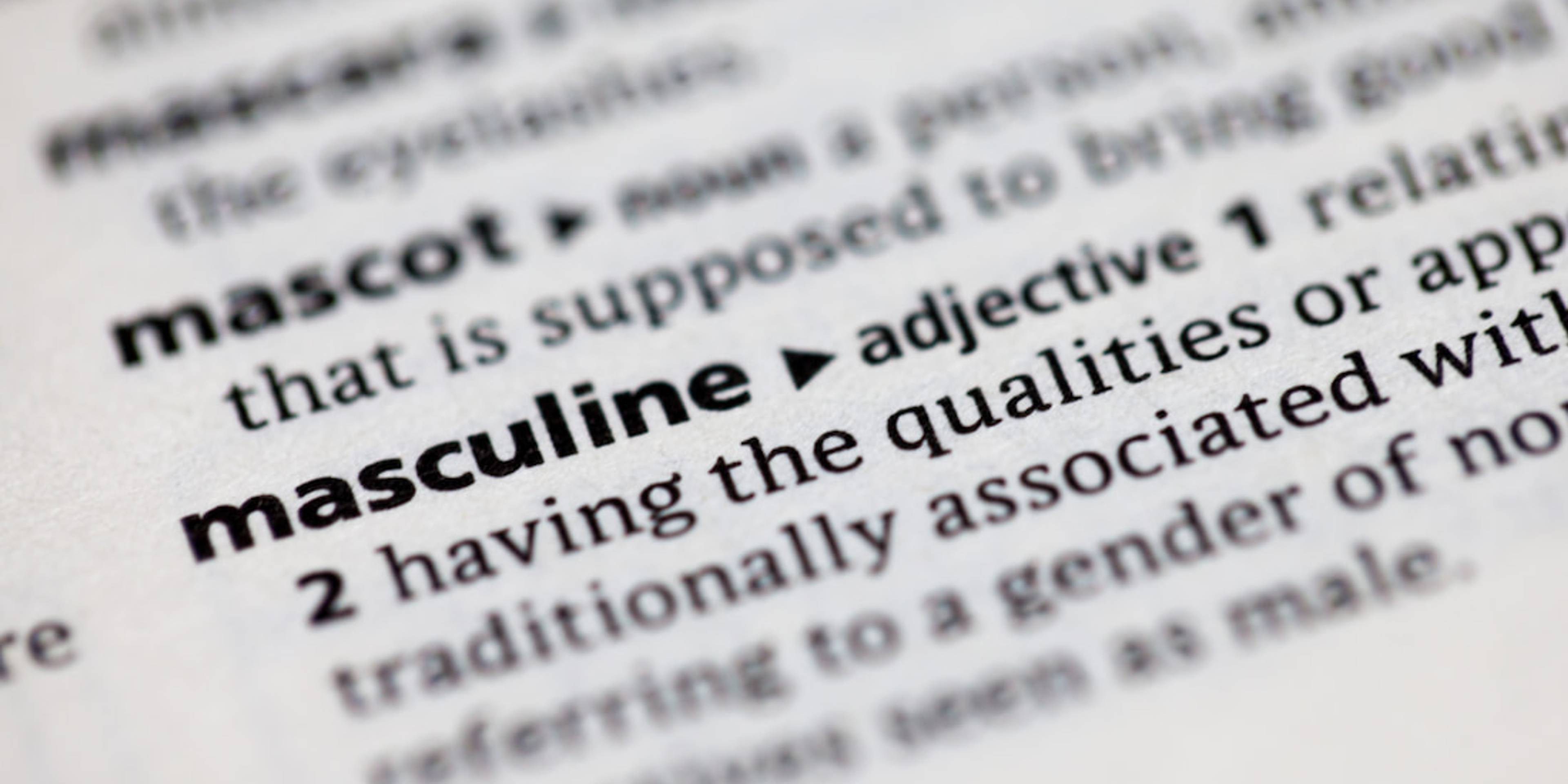December 11, 2023
Mainstreaming the black pill: incels on TikTok

You may well have heard of incels (involuntary celibates). Following several violent attacks associated with the ideology, this subgroup of the ‘manosphere’ has recently received a significant amount of media interest. Once mostly contained on niche men’s forums, incel communities and theories are gaining prominence on mainstream social media platforms.
The incels are an online community whose members define themselves by their inability to form or access sexual relationships with women. They believe that society is stratified according to physical attractiveness. Women and attractive men are privileged, and unattractive men (like them) are excluded from sexual or romantic relationships. The ‘black pill’ ideology maintains that unattractive men cannot escape their romantic fate because their unattractiveness is pre-determined by genetic factors. Incels believe that their physical traits are substandard and that they are therefore discriminated against by women based on their physical appearance. Misogynistic incels believe that this social structure has been created by women and encouraged by feminists. They consider women to be privileged, entitled, lookist and promiscuous, and believe that women always choose the most physically attractive men and exclude those who are less attractive, using pseudoscience and evolutionary psychology to reinforce their claims.
Whilst previous research considerably enhanced our understanding of the incel phenomenon and their presence on Reddit and secluded incel forums, incel’s presence on mainstream social media platforms is understudied and their presence on TikTok is yet to be addressed. Our Researcher of the Month, Anda Solea, is hoping to fill this research gap and has recently co-authored a paper on the incel subculture on TikTok. It examines the presence and spread of misogynistic narratives linked to incels on TikTok and YouTube aims to identify the mechanisms that drive engagement to such content.
Summary
TikTok is one of the most popular social media sites amongst children and teens. Whilst the platform does not release demographic data about its users, external surveys estimate that approximately 25% of TikTok users are between the ages of 10 and 19, and 47% are under the age of 30.
Anda took a sample of accounts on both TikTok and YouTube and identified 60 incel accounts in total (30 from each platform). She then selected five from YouTube and five from TikTok to study in depth. These five TikTok accounts had between 4000 and 10000 followers each and the videos from these accounts had between 200,000 and 700,000 likes. The most popular video in Anda’s sample had 1.6 millions views, 160,000 likes and over 1000 comments. Her published paper is a thematic analysis of two of these accounts, 52 videos and 1657 comments on TikTok.
Anda examined both the style and content of the accounts, noting that, due to the regulated nature of TikTok, the language and material used was less overtly misogynistic or racist than that on niche forums. In fact, the videos presented are often entertaining, or even amusing. They frequently repurpose viral internet content, memes and TV clips showing ‘unattractive’ men suffering at the hands of women and use these to create emotional appeals which portray men as victims. They also often employ pseudo-scientific claims, including fake and misinterpreted graphs, surveys and information based on evolutionary psychology and biological determinism, designed to expose women’s ‘true’ nature. Implicit, covert language and terminology is used to spread incel ideology to a wider, more mainstream audience. Some material actually encourages viewers to change their appearance through a process they called ‘bone smashing’ (instructing men/boys to use their own fist or a hammer to damage their face and change the structure of their bones), and blaming women for the need to take such action. Many of the accounts also contain links to more extreme and niche sites and forums.
TikTok’s set up, including the recommendation algorithms, the like and share features and the echo-chambers emerging from these features, aids, amplifies and distributes these messages to more people. This process of mainstreaming, legitimising and normalising incel beliefs is facilitated by their interconnectedness with wider sexism and structural gendered misconceptions such as male victimhood, and female privilege. The harms generating from this association are conducive to the normalisation of black pill beliefs and the reinforcement of misogyny, sexism and the justification of rape culture.
Implications
“The presence of misogynistic and violent beliefs on highly regulated platforms such as TikTok suggests that fringe beliefs and ideologies undergo a process of alteration to contravene platform regulations and be propelled to primarily young men.”
Implications at school and home
Report it. If you know that your child has come across incel content, make sure that they report it. On TikTok, this is an easy process and instructions can be found here. However, even when it is reported, there may be some issues with having the post removed, especially if the content is covert, implicit or uses loopholes to get around banned terminology.
If young people express some of these ideas, don’t immediately shut them down. Remain curious and interested. If we shame young people, or make them feel bad, this could make them defensive and actually push them further towards misogynistic ideologies.
Ask where they saw the content or idea. Try to tease out the authenticity and credibility of the source material and encourage critical thinking when it comes to pseudoscience. Help them to search for the study or source elsewhere online. Is it real? Is it being used in the right context?
Develop empathy for others through open conversations. Encourage young people to consider how this content makes them feel and also how it might make others feel, particularly women and girls.
Have conversations about bias. Help children to spot gender stereotypes and biases by talking about them when you see them.
Helpful external resources include the White Ribbon website and Bold Voices.

Anda Solea
PhD researcher in the School of Criminology and Criminal Justice
Anda Solea is a PhD researcher in the School of Criminology and Criminal Justice at the University of Portsmouth. She completed a joint honours BSc in Criminology and Psychology at the University of Southampton and an MSc in Social and Organisational Psychology at the University of Exeter. Her PhD thesis examines the presence and spread of misogynistic narratives perpetuated by incels (involuntary celibates) on TikTok and YouTube. She aims to identify the mechanisms that drive engagement to such content and to raise awareness about the role mainstream social media platforms play in the spread of harmful ideologies responsible for the perpetuation of problematic gender stereotypes and violence against women.
Anda Solea
PhD researcher in the School of Criminology and Criminal Justice
Related Resources


Scroll our research gallery

Feb 17, 2026
Children's Experiences of ADHD
While there have been many empirical studies of childhood ADHD, there have been few qualitative studies investigating first-hand accounts of the lived experiences of children. Much of the literature focuses on the perspectives of parents or teachers, rather than centring children’s voices. But what are children's thoughts, feelings and experiences? Our latest Researcher of the Month, PhD candidate Daphne Ling, has recently published findings which begin to address this research gap.

Jan 19, 2026
The power of reading: books, vocabulary and learning
Did you know that 2026 is the UK’s National Year of Reading? This long-overdue initiative reflects growing concern and renewed commitment around children’s reading and literacy. As Dr Maria Korochkina, our latest Researcher of the Month, puts it: “The ability to read opens up worlds. Reading enables children to progress into post-primary education and provides the basis for lifelong learning and prosperity into adulthood”. Frequent readers tend to have a stronger understanding of both their own and others’ emotions. They are often better able to communicate these emotions, a skill linked to higher emotional intelligence and improved mental wellbeing. Reading also encourages cause-and-effect reasoning and helps children imagine scenarios beyond the immediate moment - developing the skill of -future-thinking'. A rich vocabulary underpins learning across the school curriculum, strengthens thinking and communication skills, and predicts both academic attainment and later life outcomes. Research consistently shows that the most effective way to build vocabulary is through reading. However, learning to read well is not quick or effortless. The journey to skilled reading typically spans around ten years, requiring high-quality classroom instruction alongside sustained practice through independent reading. For many children, this process is painstaking, demanding consistent teaching, encouragement and opportunity over time. Against this backdrop, recent evidence presents a worrying picture. Fewer children are reading for pleasure than ever before. In 2024, only one in three UK children and young people aged eight to 18 reported enjoying reading in their free time. Even more strikingly, just one in five said they read daily for pleasure, the lowest level recorded since the National Literacy Trust began collecting this data in 2005. This matters because reading ability and reading enjoyment are deeply intertwined. Children who find reading effortful are far less likely to choose to read independently. Dr Korochkina’s research highlights how early reading experiences shape later habits: difficulties with phonic and morphological knowledge in the early stages of reading acquisition can have a snowball effect, reducing confidence, fluency and motivation over time. Her work also offers a powerful note of optimism. Books that children actively choose to read, including contemporary, popular texts, provide rich opportunities to develop vocabulary, particularly when children read widely. Ensuring access to a diverse range of engaging reading material, alongside strong early instruction, can play a vital role in building both reading skill and reading motivation. Fostering confident, motivated readers requires long-term commitment. It is not enough for children simply to have books available to them. They need skilled teaching, time, practice and a culture that values reading as both a skill and a pleasure.

Dec 15, 2025
Crossing the line into cybercrime
As the most digitally connected generation so far, young people today face new challenges. Our latest Researchers of the Month, Professor Davidson and Dr Farr, have found that in the last decade, an increasing number of young people (particularly young men) have committed serious cybercrime offences, particularly hacking and money laundering. Their new book, written following a large research project funded by the European Union’s Horizon 2020 research and innovation programme, seeks to understand the drivers behind this trend. It explores a range of potential factors that may lead young people to engage in risky online behaviours, and to identify effective pathways for prevention.

Nov 16, 2025
Supporting Children’s Use of AI
Children and young people are now growing up surrounded by AI, and the landscape is shifting fast. In the UK, recent data from Ofcom and Internet Matters suggests that around half of children aged 8–17 regularly use generative AI tools such as ChatGPT, Bard or Snapchat’s MyAI. Many describe these interactions as feeling like conversations with a friend. A recent report from Common Sense Media found that 33% of teens had actually chosen to talk to an AI companion instead of a real person about something important or serious. Whether children are asking voice assistants to answer their questions, relying on chatbots for bedtime stories, using learning apps for revision or engaging with large generative AI models, it’s essential to remember that most of these systems were built with adults in mind, not children. They often assume levels of attention, memory and emotional maturity that younger users simply don’t have. Even older children and teenagers, who increasingly use AI as a supportive confidante (often without adult supervision or knowledge), are still learning to navigate boundaries around trust, identity and emotion. Our latest Researcher of the Month, Dr Nomisha Kurian, wants this to change. She has developed a new framework called Developmentally Aligned Design (DAD), which outlines how AI can be built with children’s needs, vulnerabilities and strengths at its core. She also chatted to us at Tooled Up, sharing practical tips on recognising when children may be relying too heavily on AI for emotional connection, how to talk to them about healthy boundaries, and how parents and educators can help children and young people use AI tools safely, creatively and critically.

Oct 16, 2025
Algorithmised Girlhood: Teenage Girls and TikTok
As part of the early stages of her PhD study, our latest researcher of the month, Chiara Fehr, ran several focus groups about experiences of TikTok with eight 17 year old girls. Using creative methods, such as ‘TikTok show and tells’ a collaging session and a utopic mapping exercise, Chiara is exploring whether dominant narratives around growing up in a digitised world reflect the real life experiences of teens, and has summarised her findings so far in a recent article.
![“[They use devices] alllllllll day long”. What do children think about our tech use?](https://cdn.sanity.io/images/jxfh43in/content-prod-d2c/79f219275088655f59590f61ff29b6bc8b0d77f8-1100x733.jpg?w=3840&h=1920&q=70&fit=crop&crop=center&auto=format)
Sep 09, 2025
“[They use devices] alllllllll day long”. What do children think about our tech use?
We're all used to reading about children and young people's increasing use of digital tech. But what about adults' use? And what impact might our tech use have on family life? Parents today are spending an unprecedented amount of time on their devices. One study found that parents spend an average of nine hours per day engaged with screen devices. Over four hours of this is on smartphones, averaging 67 phone checks per day. Despite children's central role in family life, their voices and perspectives on the device use of the adults around them have been largely neglected in research. Along with colleagues, our latest Researcher of the Month, Professor Cara Swit, has published a fascinating study exploring the experiences and perceptions of children aged six to nine about their parents’ device use at home and its impact on them.

Aug 13, 2025
Students’ views on smartphone bans
In recent years, banning or restricting children’s access to smartphones and social media has grasped the attention of policy makers, schools and parents. A number of countries, including France, Turkey, Norway, Sweden, and regions of the US and Canada have introduced laws, policies or guidance for schools to ‘ban’ or heavily restrict the use of phones. Within Ireland, in 2024, the Minister for Education announced her intention to introduce smartphone bans in post-primary schools, whilst at the same time acknowledging that individual schools are best placed to decide on the scope and scale of restrictions for their students. Whilst these bans aim to protect children from harm, and teachers often anecdotally report seeing benefits, evaluations of existing research highlight a lack of evidence on their efficacy. At the moment, we simply don't know enough about the impact of bans. Evidence is hampered by the fact that technological developments and technology use is moving at a faster pace than research. Some studies suggest that bans are beneficial to academic outcomes and mental wellbeing. Others suggest no effects. However, many studies have methodological weaknesses, use small samples or retrospective data, and can't ascribe causal mechanisms. Our latest Researcher of the Month, Dr Megan Reynolds, has recently published a paper which explores young people's perspectives and experiences of smartphone bans in their schools. Unlike most previous research, it centres student voices in this high profile issue.

Jul 14, 2025
Do teens with mental health conditions use social media differently than their peers?
As Luisa Fassi, our new Researcher of the Month, comments, "The link between social media use and youth mental health is hotly debated, but hardly any studies look at young people already struggling with clinical-level mental health symptoms". In fact, Luisa's large systematic review and meta-analysis found that only 11% of papers published on the topic since 2007 focused on young people with clinical conditions. Her review also showed that the data used to evidence mental health conditions in these existing studies is not always strong or especially robust. Many report links between social media and mental health on the basis of short self-report questionnaires, where young people are asked about symptoms. Whilst this wasn't found as part of Luisa's review, it is also the case that very few papers in the field differentiate between different mental health conditions, or examine different symptoms or conditions (such as anxiety, ADHD or eating disorders) in isolation. To address this research gap, Luisa and colleagues have recently published a fascinating and nuanced paper. It analyses both quantitative and qualitative dimensions of social media use from a nationally representative survey of 3,340 teens in the UK aged between 11 and 19 years old, which was conducted by NHS Digital in 2017. Rather than gathering mental health data from self-report questionnaires, the young people in the survey underwent a full clinical screening, which included interviews with the young people, their parents and teachers. Information about social media use came from questionnaires completed by participants. They were not asked about specific platforms. Luisa used this data to gather novel insights into how social media and mental health are related in teens who both meet and do not meet diagnostic criteria for a wide range of mental health conditions. The study does not establish any causal links, but it does reveals a range of differences between young people with and without mental health conditions when it comes to social media.

Jun 17, 2025
Navigating the feed: younger adolescents' reflections on algorithmically curated social media
Our latest researcher of the month, Roxana Pomplun, has investigated the interactions, experiences and perceptions of younger adolescents, aged 11, 12, and 13, with algorithmically curated platforms such as TikTok, YouTube Shorts, Spotlight on Snapchat and Reels on Instagram. These kinds of platforms use algorithms to personalise and tailor feeds, harnessing user data to suggest content that the individual is most likely to be interested in and engage with. As such, young people have little control over what they are seeing in their feeds. Tech companies are not yet required to be transparent about the data that they are collecting, but it tends to include demographic information such as age, gender or location, along with use patterns. Whilst these sites dominate the digital lives of tweens and teens, until now they have received little dedicated research attention, particularly in relation to younger users, with most existing studies focusing on older teens. Whilst we know that most social media platforms have age limits of 13, we also know that many younger children are active users, particularly of algorithmically curated platforms like TikTok and YouTube Shorts. Given that early adolescence is a life phase marked by critical neurological development, identity development and heightened susceptibility to mental health issues, deepening our understanding of how younger adolescents engage with social media is vital. Roxana's qualitative research, where a group of young people eloquently explore their own experiences and perceptions, broadens our knowledge of social media use within an age group that appears increasingly aware of the digital influences shaping their online experiences, yet which is still in need of support to fully navigate these ecosystems.

May 15, 2025
Looking beyond smartphone bans
Over the last year or so, there has been a surge in public concern around smartphones and social media. Banning or restricting children’s access to smartphones and social media has grasped the attention of policy makers, schools and parents. A number of countries, including France, Turkey, Norway, Sweden, and regions of the US and Canada have introduced laws, policies or guidance for schools to ‘ban’ or heavily restrict the use of phones. In the UK, there are proposals to raise the age of ‘internet adulthood’ from 13 to 16, and to ban smartphones in schools. The third reading of a private members’ bill on this topic will be heard in parliament in July. Whilst these bans aim to protect children from harm, recent studies highlight a lack of evidence on their efficacy. Along with a team of international experts, our latest Researcher of the Month, Professor Victoria Goodyear, argues that, in isolation, banning smartphone and social media access fails to equip children for healthy use of technology. She suggests that there is a need to shift debates, policies and practices away from a sole focus on restricting smartphone and social media access, toward an emphasis on nurturing children’s digital skills for healthy technology use, and a rights-respecting approach which is underpinned by age-appropriate design and education.


